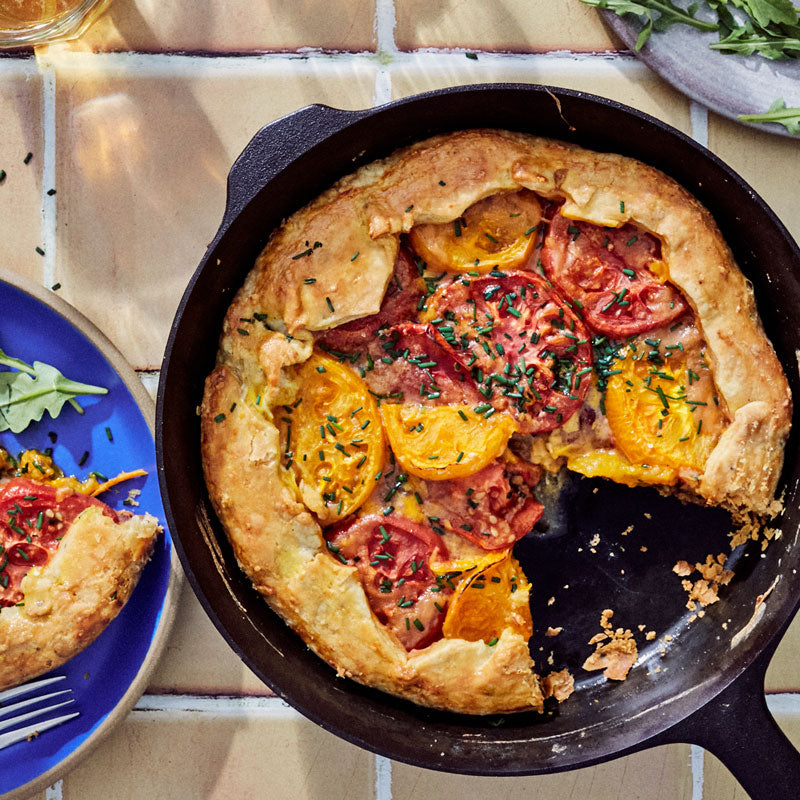Tomato season arrives slowly, and frying is the best way to use up less-than-ripe tomatoes—plus, it’s a great way to season your skillet. Green tomatoes are the early season archetype, but our recipe for fried tomatoes is made for red, yellow, green and every shade in between.

Recipe: Fried Any-Color Tomatoes
Ingredients
2 medium firm tomatoes (any color, as long as they’re not too ripe)
Kosher salt and freshly ground black pepper
1 large egg
2 tablespoons buttermilk or whole milk
½ cup medium-ground cornmeal
¼ cup all-purpose flour
½ cup finely grated Parmesan cheese
Canola oil, for frying
Mayonnaise, for serving
Lemon wedges, for serving
2 tablespoons chopped herbs (basil, parsley, chives, etc.)
Tools
Resources
The Field Method for Cast Iron Care
Instructions
Place a wire rack inside of a rimmed baking sheet. Cut the tomatoes crosswise into ¼-inch slices. Arrange the tomatoes on the rack and sprinkle both sides with salt. Let sit for about 10 minutes, then pat dry with paper towels.
In a small bowl, beat the eggs with the buttermilk. In another bowl, stir together the cornmeal, flour, Parmesan, 1 teaspoon salt, and ¼ teaspoon ground pepper. Dip a slice of tomato in the egg mixture, then dredge in the cornmeal mixture until well coated. Transfer to the wire rack and repeat with the remaining tomato slices.
Add ¼ inch of canola oil to a No.12 Field Skillet and heat over medium heat until it shimmers. Working in batches, fry the tomatoes, turning them once with a spatula, until golden brown, 3 to 4 minutes per side. Transfer the fried tomatoes to a wire rack until all of the tomatoes are finished.
Transfer the fried tomatoes to a serving platter, drizzle with mayonnaise and sprinkle with chopped herbs. Serve with lemon wedges.
Seasoning Rating: Best
Deep and shallow frying are great ways to add seasoning to your skillet or Dutch oven. We recommend using the largest skillet you have to help maintain a steady oil temperature for even frying.
Seasoning Ratings:
Best—These dishes are the best options for building resilient seasoning, and surefire choices for getting tricky pans back on track.
Better—The best way to keep your skillet in great shape is to cook frequently, and cast iron-friendly dishes like these are your bread and butter.
Safe—These recipes won't strip seasoning away from your pan, but won't really add any, either.
OK—Be sure to clean up promptly. Recipes with this rating might feature acidic ingredients which can affect seasoning if not washed soon after cooking.
Cast Iron Cookware that Makes Clean-up Easy
The key to reliable, use-it-every-day cast iron is seasoning: a smooth, well-seasoned skillet will clean up with just a quick wash, and produce natural non-stick performance every time. Apply a dab of Field Seasoning Oil after cleaning to protect your skillet and build durable non-stick seasoning.






